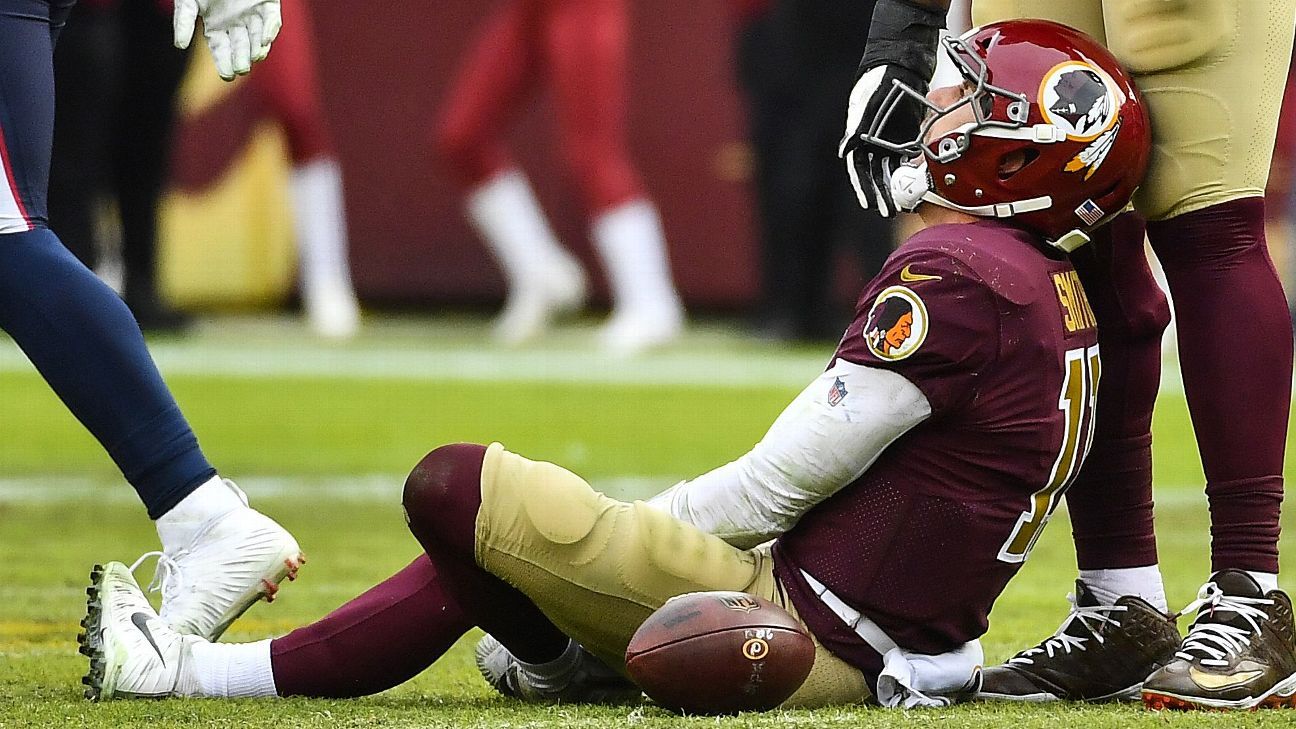As much as we obsess over how NFL teams look on paper before the season, Super Bowl runs can come down to who stays healthiest over the course of a long, arduous season. The 2017 Eagles are the obvious counter-example, given that they won with Carson Wentz, Jason Peters and others sidelined, but they’re a rare exception to what has generally been a rule. We’re also seeing those same Eagles struggle under the weight of a new set of injuries this season.
Of course, even the healthiest NFL team is going to put up with injuries here and there. In some cases, there’s no getting past losing a player like Andrew Luck or Deshaun Watson. In other situations, teams manage to scrape by with excellent coaching and useful depth. Week 11 saw a little bit of both scenarios. Let’s get to a few of the players whose injury absences either impacted the playoff picture on Sunday or will do so in the weeks to come, beginning with an incident I can’t imagine anyone wanting to see again …
Jump to a team’s injury:
WSH | TEN | LAC | JAX
PHI | BAL | NE | KC

The most notable injury on Sunday came in Washington, where Smith suffered a gruesome compound leg fracture on a third-down sack. The injury required immediate surgery and will obviously sideline Smith for the remainder of the season. Washington turned things over to backup Colt McCoy, who led two touchdown drives but couldn’t get his division-leading team over the hump in a 23-21 loss to the streaking Texans. McCoy went 6-of-12 for 54 yards on his first pass attempts since the 2015 campaign.
Vegas doesn’t appear to anticipate a huge drop-off between Smith and his replacement. Last week, one bookmaker suggested he wouldn’t move the line even a half-point if Washington was forced to replace Smith with McCoy. That might not be reflected in practice, given that Washington has gone up as an eight-point underdog for its Thanksgiving Day game against the Cowboys.
Smith was struggling on Sunday before the injury, as the longtime Chiefs standout was averaging just 5.0 yards per attempt and had thrown two interceptions, including a pick-12 that ended up serving as more than the margin of victory. Miscommunication between Smith and Jordan Reed in the end zone led to an interception for Justin Reid, who took the ball 101 yards from his own end zone to the house for a critical score.
Communication is going to be the short-term concern for McCoy, because he hasn’t practiced with the starters and will get only a few brief reps on a short week before flying to Dallas. Coach Jay Gruden had some success giving McCoy quick throws off three-step drops, and the former Texas star was able to create first downs with his legs, but when McCoy held onto the ball for any length of time, he was either sacked by a fearsome Texans pass rush or unable to find any open receivers.
J.J. Watt & Co. versus a line missing three starting offensive linemen isn’t really a fair matchup, and while McCoy has been a competent backup quarterback during his career, the injuries around him might put too much on the 32-year-old’s plate. He’s down Chris Thompson, Jamison Crowder, Paul Richardson, and multiple offensive linemen. Reed and Adrian Peterson aren’t 100 percent healthy. The best-case scenario for a backup quarterback is when he takes over behind a solid offensive line with weapons, like Nick Foles and Case Keenum last season. This is very different, and it’s difficult to imagine Washington, which is 6-4 and atop the NFC East, getting a ton out of McCoy over the final six weeks of the season.
Smith’s future is uncertain. The most obvious comparison is to former Washington quarterback Joe Theismann, who wasn’t able to return to the NFL after suffering a broken leg exactly 33 years to the day of Smith’s injury. Medicine has advanced since then, though, and Smith’s injury doesn’t appear to be the same sort of fracture. Former Chargers team doctor David Chao suggested after the game that Smith would be healthy enough to return in 2019, although it remains to be seen whether Smith will retain the mobility he showed before the fracture. Washington will be in serious trouble if Smith can’t make it back, given that Smith has $31 million in base salaries for 2019 and 2020 guaranteed for injury.
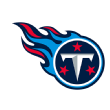
Mariota probably wasn’t going to make a huge difference for Tennessee on Sunday, as the Titans were already down 24-0 to the Colts when the former second overall pick went down with an aggravation of his elbow injury. The elbow ailment cost Mariota a game earlier this season and forced him to play at least one half of football with numbness in his fingers after backup Blaine Gabbert went down with an injury of his own.
While the Titans were blown out by the Colts before and after Mariota’s injury Sunday afternoon, they were able to survive without a healthy Mariota earlier this season. Gabbert won his lone start against the Texans in Week 2, while Mariota did enough as a substitute to beat the Jaguars in Week 3. Those efforts had little to do with the offense, though; the 20-17 win over the Texans was decided by a fake punt for a touchdown, while the Titans managed to hold the Jags to two field goals in a 9-6 victory.
Mariota’s status for a critical Week 12 divisional rematch with the Texans is unclear, although he’ll get an extra day to heal with the Titans playing on Monday Night Football. “Unclear” is also a good way to describe the absolutely inscrutable Titans, who must be an absolute mystery to even themselves. Tennessee followed a three-game winning streak with a three-game losing streak, then righted the ship with impressive victories over the Cowboys and Patriots. Beating the Patriots by 24 points and subsequently losing to the Colts by 28 points seven days later is inexplicable.
At this point, honestly, the Titans seem predicated more upon their defense than whatever Mariota or the passing attack is offering from week to week. They came into the week ranking fourth in defensive DVOA variance, suggesting they’ve been relatively conservative. The offense, on the other hand, had been the sixth-most inconsistent attack in the league. The Titans will look less consistent after allowing the Colts to score 38 points on Sunday, but there’s not really much shame in getting torched by Andrew Luck & Co. Since the start of October, only the Saints have been scoring more points per game on offense than Frank Reich’s team. (It probably did not help matters when Titans defensive coordinator Dean Pees left the game during the first half and went to a hospital with an undisclosed medical condition.)
The one place they haven’t been consistent on defense might be the key. When the Titans win, they rank 14th in the league in pressure rate (relative to the pressure rates of other teams around the league when they win, too). When Pees’ defense loses, though, it has the league’s fourth-worst pressure rate. The good news is that the Titans, one of five 5-5 teams in the AFC, are about to face a string of porous and/or banged-up offensive lines with the Texans, Jets, Jaguars, Giants and Washington to come before a rematch with Indy in Week 17.
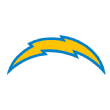
Perryman is not the sexiest name in the league, but the Chargers’ inside linebacker was sorely missed on Sunday. The 2015 second-round pick went down early in the Week 10 win over the Raiders and was subsequently placed on injured reserve last week. The Chargers replaced him with a combination of Kyle Emanuel and Uchenna Nwosu, and while Emanuel helped out on a fourth-down stop early in the game, the Broncos have to be happy with what they accomplished in Perryman’s absence.
Denver ran the ball 19 times for 108 yards and three touchdowns on Sunday, an impressive total from a team down its two best interior linemen in Ronald Leary and Matt Paradis. Running back Phillip Lindsay also had four catches for 27 yards. Case Keenum did most of his work over the middle of the field, too, going 7-of-10 for 87 yards on passes between the numbers.
It wouldn’t necessarily be fair to pin that all on Perryman’s absence, but the Chargers missed their stalwart inside linebacker last season, too, when he missed nine games with ankle and hamstring injuries. With the University of Miami product on the field, the Chargers allowed an average of 4.0 yards per carry and 1.6 yards after initial contact. Without Perryman, Gus Bradley’s defense gave up 5.8 yards per carry and a league-worst 2.6 yards after first contact.
The Chargers have gotten by without the likes of Jason Verrett and Joey Bosa this season, but with Perryman’s return stabilizing the defense and sparking a second-half winning stretch last season, it’s hard not to feel some sense of dread about what happened Sunday. The old Chargers who seemed to snatch defeat from the jaws of victory came back. Anthony Lynn’s team committed a staggering 14 penalties, tying them for second most in a game this season. Kicker Michael Badgley whiffed on an extra point in a game that ended up being decided by … one point. Philip Rivers threw two interceptions, including one to Von Miller on a screen pass the Chargers ran for a big play earlier in the game.
Most notably, with an opportunity to seal the game, the Chargers (7-3) ran a broken play on second down before Rivers one-hopped a screen on third down. They had the Broncos backed up with a second-and-16 on their own 45-yard line with 37 seconds left, but Keenum drove the Broncos 39 yards on two plays to set up the game-winning field goal try from Brandon McManus. It was a disheartening loss to an inferior team at “home” in front of a group of fans mostly wearing the opposing team’s colors.
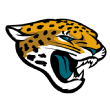
Robinson is just one of the offensive linemen Blake Bortles has lost this campaign, but the second-year left tackle was lost at the high point of the Jacksonville season, and the Jags haven’t recovered. Robinson tore his ACL during the Week 2 victory over the Patriots, during which Bortles threw the ball 45 times for 376 yards and four touchdowns. The much-maligned former first-round pick has just seven touchdown passes in the ensuing eight games, as the Jaguars have dropped seven of eight and seen their season come crashing down.
Any hopes of a possible Jags resurgence came to an end with a heartbreaking loss to the Steelers on Sunday. It was a game in which offensive coordinator Nathaniel Hackett clearly had no faith in Bortles or the offensive line’s ability to protect Bortles, who was sacked six times in just 24 dropbacks. Hackett had Bortles attempt just 18 passes, including a mere five throws (with four sacks) in 25 plays in the second half. The Jags also were missing center Brandon Linder, but their hole at left tackle is most notable given that they’re now starting Ereck Flowers, who started the year as the Giants’ right tackle. Backup center Tyler Shatley actually had a worse day than Flowers, but the offense has ground to a halt since Robinson was injured.
As a result, a game the Jags absolutely needed to win and should have won using the Tom Coughlin Formula from a year ago turned into a brutal defeat. Jacksonville held the Steelers scoreless for the first 42 minutes of the game and went up 16-0. Jalen Ramsey and the Jags’ defense picked off Ben Roethlisberger three times and forced the Steelers to become one-dimensional, which should have freed their pass rush to tee off on the veteran quarterback. Hackett’s bevy of running backs combined with Bortles to run the ball 43 times for 179 yards.
It all didn’t matter. The formula relies on the quarterback to do something to win against a competent offense, because the Jags couldn’t keep Roethlisberger down forever. The Jags (3-7) turned three possessions that started on Pittsburgh’s side of the field into six points. When they needed a first down or two to keep the Steelers’ offense off of the field, the offensive line couldn’t manufacture one. The Jaguars didn’t record a single first down on their final five possessions. They are a broken offense, and while it’s easy (and partly true) to pin it on Bortles, the loss of Robinson seems to have set off a disastrous chain of events.

Well, this includes just about everyone besides Malcolm Jenkins, who was last seen Sunday nipping at Alvin Kamara‘s heels on the fourth-and-6 go route the Saints ran for a touchdown to go up 45-7 in the fourth quarter. If Doug Pederson was famed for never taking his foot off the gas last season, Sean Payton hit the nitrous up 31 points on Sunday.
The other defensive backs on the field on that play aren’t exactly Eagles legends. Corey Graham had already been benched this season for Avonte Maddox, who went down in the first quarter with a knee injury. The center fielder on the play was Tre Sullivan, who spent 2017 on the practice squad and had six defensive snaps as a pro before playing 21 snaps against the Cowboys last week. Neither of them are a close approximation of Rodney McLeod.
At cornerback, Philly had Cre’von LeBlanc, Chandon Sullivan and De’Vante Bausby, none of whom made the active roster out of camp. The Eagles got limited snaps out of the returning Sidney Jones, who missed a key tackle on the 38-yard Mark Ingram run that opened the game for the Saints before leaving with a hamstring injury, and lost Rasul Douglas during the game with a knee injury. Ronald Darby is already on injured reserve. Jalen Mills was out with a foot injury. The Eagles were playing replacement-level defensive backs, Jenkins aside, against the league’s most efficient passing attack. What happened next would qualify as a horror film.
To his credit, Jim Schwartz tried to play away from type and show the Saints something new. They played way more man coverage than usual and doubled Michael Thomas, daring Drew Brees to beat them by going to other receivers. Brees went 10-of-13 for 157 yards on throws to Tre’Quan Smith, picked up chunk yards on throws to Dan Arnold, Josh Hill and Keith Kirkwood, and still managed to hit Thomas for 92 yards and a score on four targets. The Saints’ top receiver is now catching 90.1 percent of his passes, an unprecedented catch rate for a wideout who draws as much attention as Thomas does from opposing teams.
There’s no quick fix coming for the Eagles. Jones might not be ready for Week 11. Mills wasn’t playing all that well when he was in the lineup. Their best bet is to get more out of their pass rush and hope that the extra pressure can cover up weaknesses in their secondary. Fortunately for Philly, its next two games are against the Giants and Washington, whose offensive lines are a mess. At 4-6, those divisional contests probably qualify as must-wins to keep the Eagles in the race for the NFC East crown.

With their longtime quarterback starter missing just his seventh game as a pro with a hip injury, Ravens fans had to be excited to see the debut start of first-round pick Lamar Jackson against the Bengals on Sunday. The Heisman Trophy winner had thrown the ball 12 times and racked up 28 carries over the first nine weeks of the season as a part-time player, getting most of his touches as an option quarterback in the red zone. I was intrigued to see whether the Ravens would expand their playbook coming off a bye week with Jackson in a starting role.
Instead, we mostly just saw a larger portion of the package Jackson was running in his limited role. The Ravens ran an extremely conservative, run-heavy scheme, with Jackson spending most of his time in the pistol with an H-back alongside him and a halfback behind. Baltimore’s first 13 plays were all rushes, including an 11-play, 75-yard drive for the opening touchdown with read-option looks the Bengals didn’t seem prepared to defend.
As a runner, Jackson was good. He carried the ball 27 times for 117 yards, an attempt total topped in Week 11 only by Leonard Fournette. By my count, it’s the second-most carries a quarterback has racked up in a single game going back 68 years to Joe Geri, who was really a tailback playing in a different sort of offensive structure for the 1950 Steelers. This was the largest rushing workload a real quarterback has shouldered in the history of the NFL.
Seven of those runs turned into first downs, though Jackson also was stuffed on a fourth-and-1 sneak and came up short running QB power on third-and-4 as Baltimore was trying to chew up clock with a three-point lead late in the fourth quarter. He picked up 21 yards on a beautiful quarterback draw on third-and-4 on the opening drive, but Jackson came up short on a series of draws in goal-to-go situations. The threat of Jackson did seem to create running lanes for the likes of previously unknown backup Gus Edwards, who carried the ball 17 times for 115 yards.
When Jackson dropped back to throw, the results were uneven. The Ravens clearly didn’t trust him to do much as a passer, and he finished 13-of-19 for 150 yards with an ugly interception on a scrambling attempt to the sideline. His biggest pass of the day was a 23-yard toss to John Brown just before halftime to set up a long Justin Tucker field goal, which came at the end of a scramble so long that Jackson actually tucked the ball to run and then untucked it to throw a pass.
Jackson looked more comfortable in the second half after his interception, as he drove the Ravens down the field for a touchdown and then inside the 10-yard line for what ended up as the game-winning field goal try. The Ravens had Jackson attempt just one pass of more than 20 yards, and even that was essentially a throwaway on third-and-17 when something short would have pushed the Ravens into Tucker’s range.
Simultaneously, Jackson’s day was exciting and disappointing. It was good to see the Ravens build their game plan around Jackson’s strengths instead of simply plugging him into a Flacco uniform and asking him to do the same things the starter typically does. It’s also telling that the Ravens didn’t seem to trust Jackson to do more in the passing game, especially against a middling pass defense that ranked 22nd in DVOA heading into the game. He finished the day with a Total QBR of 26.7, which takes into account his contributions as a runner.
Ravens fans who were hoping that Jackson would immediately look superior to Flacco and make an overwhelming case to take over as the permanent starter for the remainder of the season didn’t get the performance they were hoping to see. It shouldn’t change anyone’s long-term opinions of Jackson, of course, and he was valuable in a unique way, but he didn’t win the job. By winning the game, though, Jackson and the 5-5 Ravens stayed afloat in the wild-card race while the Bengals, Titans, Jaguars and Chargers all lost.
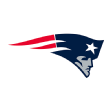
Gronk didn’t play this week with the Patriots on bye, but with New England’s star tight end missing three of the past four games before the break with a back injury, Tom Brady has suffered. His raw numbers are mostly the same, but Brady has relied far more heavily on yards after catch to build the offense without Gronkowski in the fold.
With Gronkowski on the field this season, Brady has completed 66.9 percent of his throws, averaged 8.1 air yards per pass, and posted a Total QBR of 70.6. Without Gronk, Brady has completed just 61.9 percent of his throws, a below-average figure in 2018. Brady is averaging just under 7.0 air yards per throw, with his receivers making up the difference by leaping from 5.1 yards after catch per pass to 6.8 yards per pass. Thanks in part to an increased sack rate, Brady’s QBR falls all the way to 46.0.
This is nothing new. Over the previous five seasons, Brady took 1,990 dropbacks with Gronk on the field and 1,037 without the future Hall of Fame tight end. Brady’s Total QBR fell from 75.7 to 62.4 without Gronkowski around, as his numbers fell across the board in virtually every category. Without Gronk, Brady basically went from looking like Aaron Rodgers to putting up numbers closer to what Matthew Stafford or Andy Dalton did over the same time frame:
There’s obviously no replacing Gronk, who might be the most physically dominant tight end in league history. At this point, with a two-game lead in the AFC East, the Patriots probably need to be conservative with Gronkowski, whose back issues have led to multiple season-ending surgeries. The Pats shouldn’t be aggressive about rushing him back for a road game against the Jets next Sunday, and honestly, I would think twice about running him onto the field against a Vikings defense in Week 13 that can be brutal on opposing receivers. The target should be Week 15 against the Steelers, a team that Gronk has ripped apart in years past, in a matchup that could determine whether the Patriots land a first-round bye in the AFC.
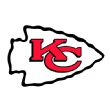
Let’s finish up with a player who has been missing all season. It has now been 25 games since we saw Kansas City’s star safety, and when Berry misses Monday night’s mouth-watering game against the Rams, it’ll be 26 straight absences. The five-time Pro Bowler missed 15 games in 2017 with a ruptured Achilles and has been out for the entirety of 2018 with a Haglund’s deformity impacting his other heel. There’s no timetable for his return.
At 9-1, the Chiefs haven’t shown effects of playing without Berry, but the Chiefs badly missed him late in their loss to the Patriots, when New England set up its game-winning field goal by targeting Gronk, who was covered by reserve defensive back Josh Shaw. Berry helped shut down Gronkowski in the season-opening upset of the Patriots last season before suffering the Achilles injury late in the game.
With the Chiefs traveling to Los Angeles, the natural matchup would have been Berry vs. Todd Gurley. Kansas City has the league’s worst run defense by DVOA and the sixth-worst pass defense against running backs by DVOA while allowing those backs a league-high 74 receiving yards per game. Would Berry single-handedly shut down Gurley? Probably not. Would he give the Chiefs their best chance of slowing down the most dynamic offensive weapon in the game? Of course.
Again, at this point, it seems like the best-case scenario is that the Chiefs get Berry back for the postseason, given that they haven’t placed the 29-year-old on injured reserve. As the Chiefs look to erase years of playoff disappointment by swapping out Alex Smith for the higher ceiling of Patrick Mahomes, it would be a shame if their defense couldn’t hold up its end of the bargain. After allowing 37 points to the Steelers and 43 points in that classic loss to the Patriots, we’ll see what the Chiefs can do without Berry against another elite offense. Their chances of making it to the Super Bowl might depend upon getting Berry back.
